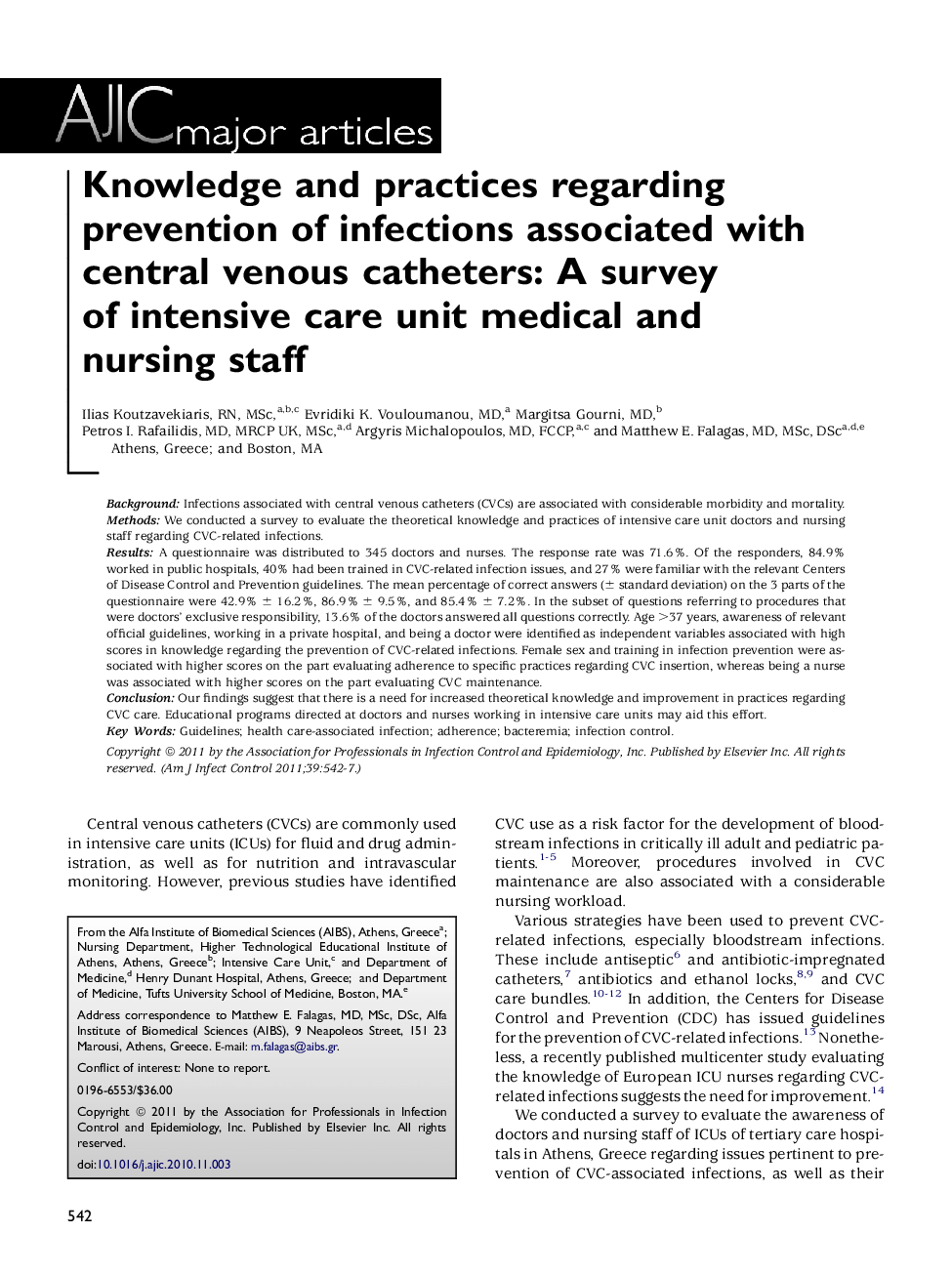| Article ID | Journal | Published Year | Pages | File Type |
|---|---|---|---|---|
| 2638781 | American Journal of Infection Control | 2011 | 6 Pages |
BackgroundInfections associated with central venous catheters (CVCs) are associated with considerable morbidity and mortality.MethodsWe conducted a survey to evaluate the theoretical knowledge and practices of intensive care unit doctors and nursing staff regarding CVC-related infections.ResultsA questionnaire was distributed to 345 doctors and nurses. The response rate was 71.6%. Of the responders, 84.9% worked in public hospitals, 40% had been trained in CVC-related infection issues, and 27% were familiar with the relevant Centers of Disease Control and Prevention guidelines. The mean percentage of correct answers (± standard deviation) on the 3 parts of the questionnaire were 42.9% ± 16.2%, 86.9% ± 9.5%, and 85.4% ± 7.2%. In the subset of questions referring to procedures that were doctors' exclusive responsibility, 13.6% of the doctors answered all questions correctly. Age >37 years, awareness of relevant official guidelines, working in a private hospital, and being a doctor were identified as independent variables associated with high scores in knowledge regarding the prevention of CVC-related infections. Female sex and training in infection prevention were associated with higher scores on the part evaluating adherence to specific practices regarding CVC insertion, whereas being a nurse was associated with higher scores on the part evaluating CVC maintenance.ConclusionOur findings suggest that there is a need for increased theoretical knowledge and improvement in practices regarding CVC care. Educational programs directed at doctors and nurses working in intensive care units may aid this effort.
